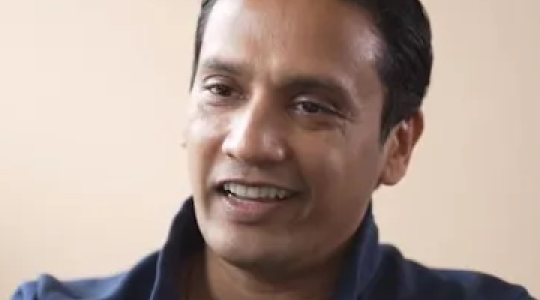Being a physician is more than simply treating the sick. It's about creating a bond of trust between the person providing care and the person receiving care. Ultimately, effective primary care is about education and support that helps individuals live longer, healthier lives.
The Southwestern Health Resources (SWHR) clinically integrated network represents more than seven-thousand providers in North Texas. One of the SWHR clinically affiliated providers, Chrisette Dharma, MD, enjoys breaking the mold of the stereotypical white-coated physician.
She grew up wanting to be a dancer.
“I took a circuitous route to medicine partly because I believed doctors were stuffy and I was more of a free spirit. I couldn’t picture myself doing that.” She enjoyed theater and movement but eventually found herself drawn to new modalities of care for patients and a focus on whole-person health that became more meaningful to her than her first love: dance.
“I believe in a proactive preventive model. In our clinic, we try to help patients in more than one way. We may allow a traditional “reactive medicine” conversation but we encourage individuals to come back for another visit so we can dive into more robust elements of care, such as a discussion of the gut-brain microbiome.”
As part of her patient-centered, collaborative approach, she keeps a scribe in the room so she’s not distracted trying to multitask and enter details into a patient’s electronic health record. “Have you ever gone to a doctor and, the whole time, they’re on the computer and maybe they lift their head once to make eye contact so they can find out what medications you’re taking? That’s so lame!”
While her scribe is taking notes, Dr. Dharma is focused on the person in front of her.
“When I’m in a room with someone, we are working together to meet their health goals. We are equal partners. I make myself as vulnerable as they are so we can collaborate together and create a healing relationship.”
After 23 years of practicing medicine, she can’t imagine a greater calling. Her background in dance and movement definitely helps her keep in step with the men and women who visit her clinic – individuals she connects with on multiple levels – but she can no longer imagine herself in any other profession.
“When they (patients) come to me, they don’t feel like they’re seeing a doctor,” says Dr. Dharma. “They feel like they’re talking to a friend who’s had unique life experiences and can relate to them. … (Modern) healthcare is all about numbers but that’s not what’s important to us. The patient is important to us.”
SWHR is committed to protecting physician independence while leveraging the network’s vast resources to improve population health. Alongside dedicated providers like Chrisette Dharma, MD, we are excited to be building a better way to care, together.



